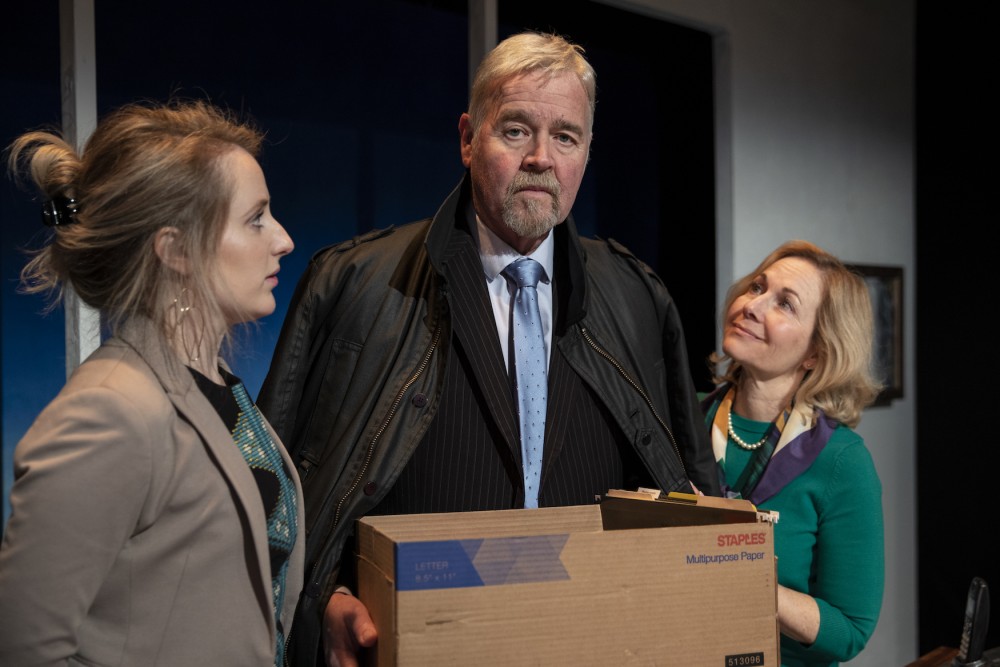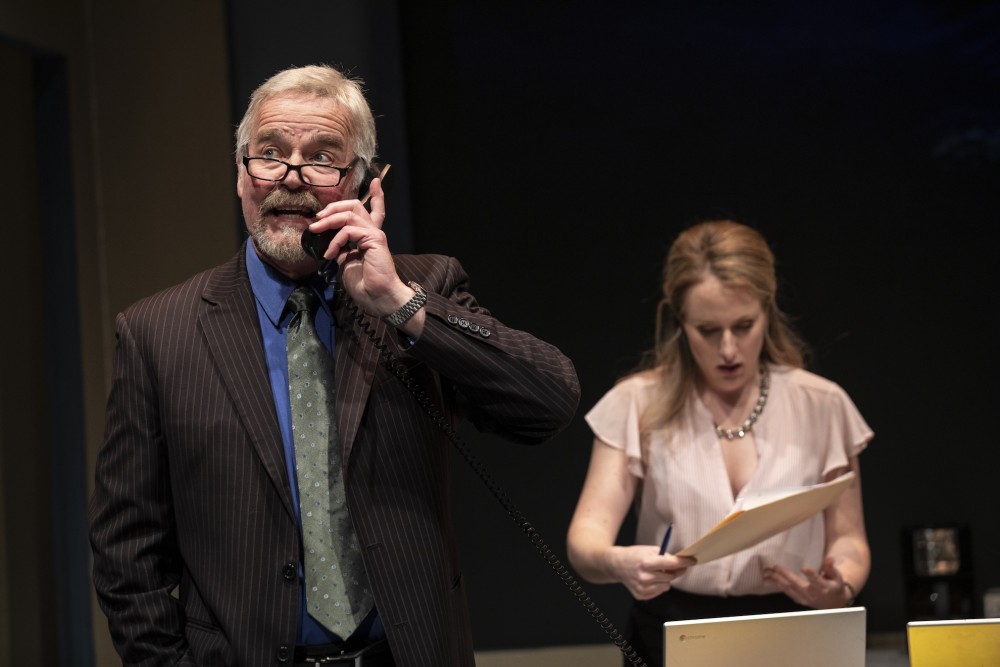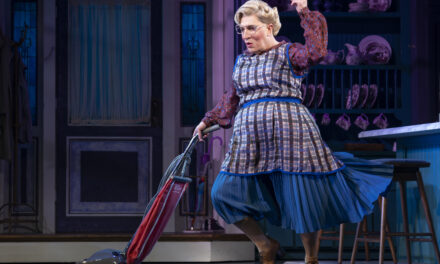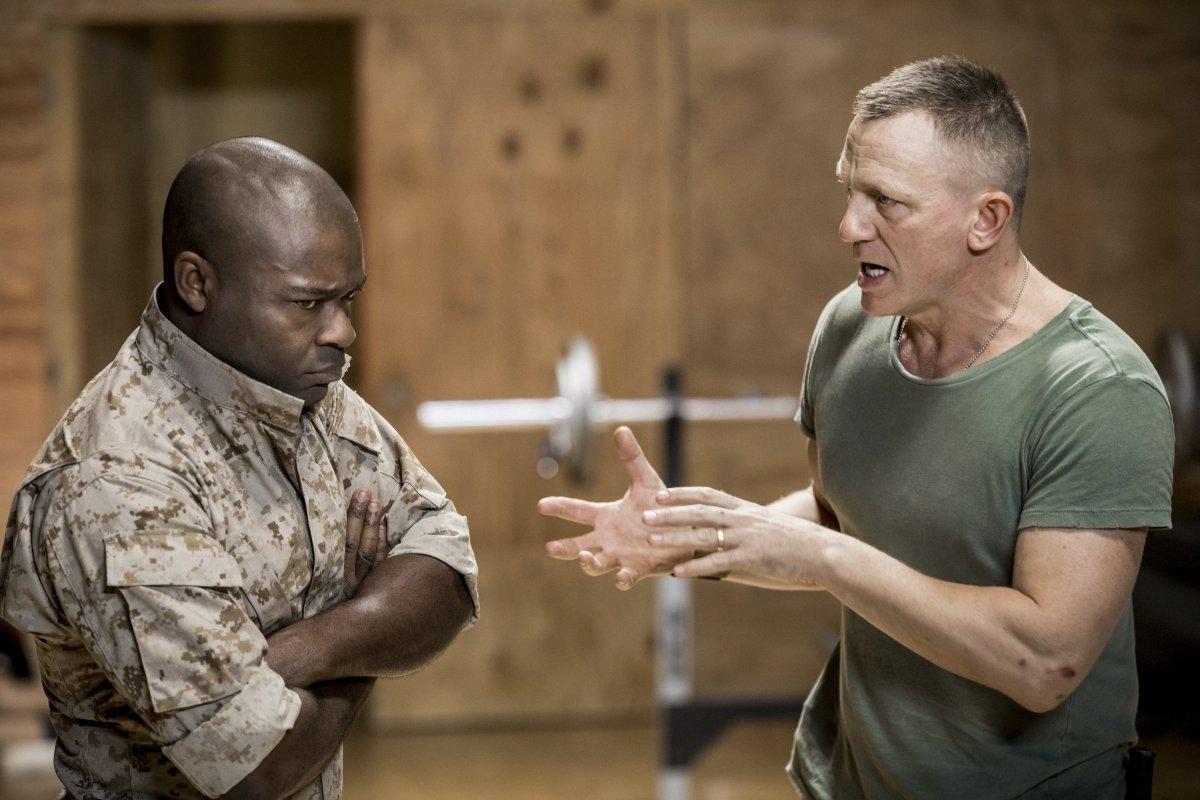
By Tania Fisher
Now playing at The Theater for the New City, Shareholder Value is set against the backdrop of the fiscal crisis of 2008, and is loosely based on the debacle at General Electric.
The fictional company, Total Electric, was, like GE, founded by Thomas Edison, and has been in business since the Great Depression of the 1930s. The play begins in 2008 and although the company is performing well, they are concerned with the approaching “real-estate bubble.” Jerry Ingram (played by Dennis Holland) is the CEO and the story is predominantly a chronicle of his efforts to spin off and sell divisions to China and other buyers while still suffering losses and making cutbacks, during the financial meltdown of 2008 to the present. It highlights the moments when the focus is shifted to the partners of the Total Electric and employees involved—offering an outside perspective—and the pressures they undergo during their efforts to deliver shareholder value every three months.
The narrative is filled with very specific references to companies and very specific financial numbers and percentages. Although it is comprised of many facts and figures—all based on actual events—it remains easy to follow and doesn’t become condescending or elitist in its language or corporate references.
Early on a scene takes place in which one of the antagonistic characters, Curt Preston (played by Benjamin Russell), quotes from Sun Tzu’s The Art of War and Machiavelli’s The Prince and it was satisfying to see the relevance of these quotes in the latter part of the play in terms of story development.
Playwright Tom Attea establishes some hints of potentially interesting scenarios for some of the characters early on, but these are not followed through or revisited to allow those ideas to be explored and developed. It would have been good to see some relationships developed. There were moments when we could see what Attea was trying to achieve, but there was an absence of an arc or growth for any of the characters throughout the play.


Mark Marcante is both the Director and the Set Designer for this production. In terms of directorial choices, there were episodes which were intended to be heightened in tension and drama that unfortunately didn’t quite come off. Most of the cast appeared uncomfortable on stage and their physicality was often stifled or awkward.
However, the Administrative Assistant to the CEO, Emily Adams, was played very naturally and competently by Kristen Tripolitis. She gives natural delivery and was always comfortable and authentic, and was also the most interesting character.
Attea provides a nice lighter and entertaining break in the play is when the ghost of Thomas Edison appears to Jerry in a dream advising him to “not sell the light bulb division.”
The play is well cast and there is excellent momentum and pace and each character’s motives and focus on their goals is made clear, particularly by character Bill Hill (played nicely by Joe Candelora).
As a set designer, Mark Marcante certainly hits the mark. He has made good economical and efficient use of the stage while keeping it visually stimulating and appropriate. A suspended screen over center stage depicting the timeframe as well as footage from news casts and street protests from the actual era help solidify the theme. The look of the set is complimented well by Set Dresser Lytza R Colon.
The play could have perhaps benefited from some further script development, addressing particular issues such as character development and furthering already introduced potential arcs for some of the characters, but the premise is however interesting and the play does keep good momentum.
Shareholder Value. Through April 14 at Theater for the New City (155 First Avenue, between East 9th and 10th Streets). 90 minutes, no intermission. www.theaterforthenewcity.net
Photos: Maria Baranova






















